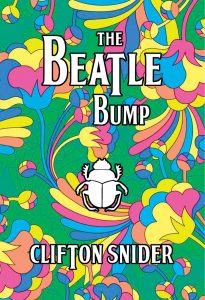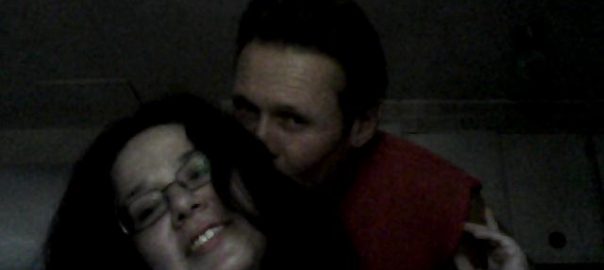From Our Archive – Fiction: “Coconut Oil” by Ayobami Abedayo

Coconut Oil
by Ayobami Abedayo
(as printed in Volume I: Issue I – May 2014)
When you first said you were in love with me, I thought it was one of your many jokes. I thought you were trying to help me forget the boyfriend who had just ditched me because my scores beat his in class. So I laughed and thought that you were such a wonderful friend. You laughed too but when I turned to look at you, your eyes couldn’t meet mine.
They are not meeting mine again now, those brown eyes that have made me forget to breathe so many times. You face the door, running your hands over the tips of your dreadlocks. This short version sticks up on your head like you’ve just had an electric shock and I resent it. You cut the dreads low just before the first time we broke up. And as I ran after you that day, I longed for the tresses so I could pull you back to me with them.
You take a step towards the door and I am afraid you will walk right through it, creating a replica of the you shaped vacuum that is already in my heart. Then your shoulders heave and I realise you must be shedding silent tears that mirror the ones cascading down my cheeks. It soothes me that you are finally falling apart after months of telling me to get myself together and move on. I step closer and hug you from behind. I link my hands across your navel, thrilled that leaving me devastates you too, even if just a little.
‘We must do this for the future.’ You say, placing your hands on mine.
‘And what happens to our own bloody future?’ I scream so loudly that my words hurt my ears.
‘You know better.’ You reply moving your palm over the back of my hands in a slow caress that I want to feel every day of my life, a caress that I don’t want any other woman to experience.
‘We don’t need to have children.’ I say this to startle you. Though I have agonised over the thought for months, it’s the first time I am suggesting it.
You turn to face me. Your eyes are dry, calm. You have not been crying after all. I loathe you for this. This calm you have displayed since we both learnt that we share the AS genotype just weeks after our traditional engagement. This calm that you have the audacity to maintain even today, the day we had planned to get married, the day I should have become Mrs You. But then, do you even remember? I loathe myself even more for the tears that are welling up again in my eyes.
You wrap your hands around my waist, lean close and whisper into my ears, ‘Tell me you really mean that and I swear I’ll stay.’ I should lie to you, make you stay, but your breath is tickling the nape of my neck and my mouth forgets to mould the lies. I say nothing and just listen to the glorious sound of your breathing.
Good bye.’ You say and pull away, breaking my bliss.
We have acted out this scene so many times that I’ve lost count. It has always ended with me running after you, blubbering that I couldn’t let you go. You always came back in, and for a few weeks we would be together. Until one day you would say we couldn’t keep deceiving ourselves or that it was over and the drama would begin again. But not today, your dry eyes have drained me of the strength to chase you.
I wipe my cheeks with the back of my hands as I watch the door slam behind you. Then I go to my room and pick up the framed picture on my bedside table. My head is bent over yours in the picture, my hands are in your hair, your face is slightly upturned and your dreadlocks are going in every direction. Your roommate took this picture when we were in the university. You were about to graduate and I still had two years to go in medical school. It was the day you wrote your final paper and I had come to your room to congratulate you, to ask what you wanted as a graduation gift. You reached into your cupboard and handed me a bottle of coconut oil. ‘Rub this in my hair,’ you said.
Time slowed to a crawl while you sat on the floor with your head between my thighs. I rubbed the oil into the kinky roots of your hair, wondering why you were so quiet, wondering why my legs were shaky. Your roommate came in the moment you said you had something to tell me. He captured that moment for us with the canon camera he always wore around his neck. Later that night, you told me you had been in love with me since we were in secondary school.
I dismantle the picture frame allowing the glass pane to clatter to the floor and shatter. I rip the glossy photograph into tiny shreds. You are standing by the bed when I turn to throw the picture’s pieces in the dustbin. We stare at each other for a while.
‘Did you forget something?’ I ask, startled that you came back, stifling the urge to run into your arms.
You walk to the door briskly as though my words are propelling you away from me. You stop when your hand touches the doorknob and start wailing. You wail and curse. You hit the door with your fist and feet. And then suddenly you fall silent and come back to me with halting steps. You stop at the foot of the bed.
“Come. Please.” You croak holding out your arms.
I walk into your arms, hold your face against mine and your tears fall on my cheeks. I close my eyes and inhale the scent of coconut oil in your hair. In this moment, there are no genes, there is no future, no past, there’s only you, your tears on my cheeks, the scent of your hair intoxicating me and your arms holding me as though you would die if you ever let go.
@ayobamiabedayo
www.ayobamiadebayo.com
Ayọ̀bámi Adébáyọ̀’s stories have appeared in a number of
 magazines and anthologies, and one was highly commended in the 2009 Commonwealth short story competition. She holds BA and MA degrees in Literature in English from Obafemi Awolowo University, Ife and has worked as an editor for Saraba magazine since 2009. She also has an MA in Creative Writing from the University of East Anglia where she was awarded an international bursary for creative writing. Ayobami has received fellowships and residencies from Ledig House, Sinthian Cultural Centre, Hedgebrook, Ox-bow School of Arts, Ebedi Hills and Siena Art Institute. She was born in Lagos, Nigeria.
magazines and anthologies, and one was highly commended in the 2009 Commonwealth short story competition. She holds BA and MA degrees in Literature in English from Obafemi Awolowo University, Ife and has worked as an editor for Saraba magazine since 2009. She also has an MA in Creative Writing from the University of East Anglia where she was awarded an international bursary for creative writing. Ayobami has received fellowships and residencies from Ledig House, Sinthian Cultural Centre, Hedgebrook, Ox-bow School of Arts, Ebedi Hills and Siena Art Institute. She was born in Lagos, Nigeria.**Feature image used at the top of this story was sourced from this website.







